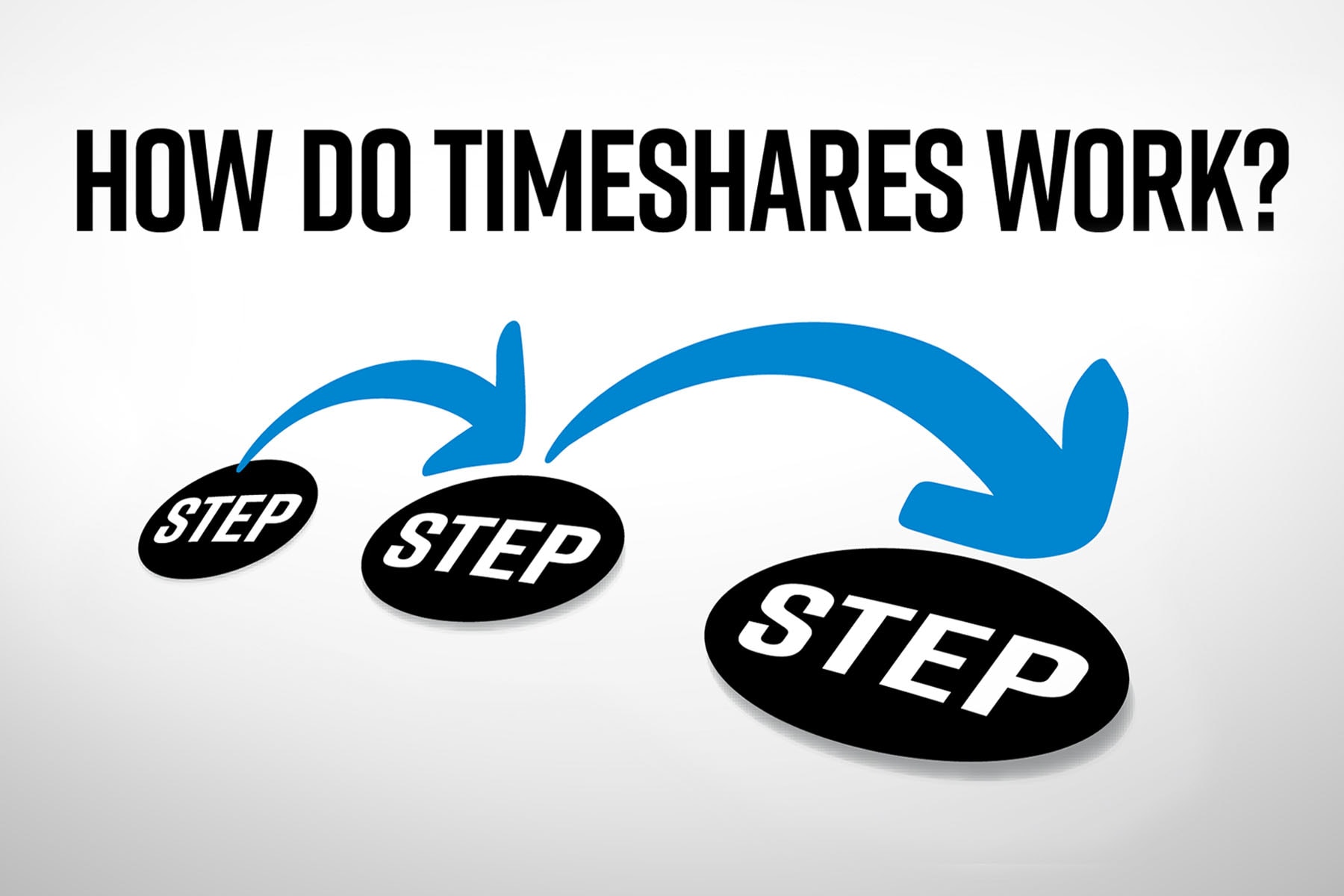Table of Contents
Key Differences of Fractional Ownership vs Timeshare and Which Is Right for You
Owning a vacation home is a dream come true for many. They provide individuals and families with easy access to vacations throughout their holiday breaks each year. However, owning and maintaining a second home may not be feasible due to real estate costs and the constant demand for property upkeep.
That is where the shared ownership sector of the real estate industry becomes relevant. With shared ownership, multiple parties can divide a property’s value into portions, each representing a particular percentage. In other words, the owners would split the time spent at the residence as well as the financial burdens, making vacation ownership more affordable.
Today, vacation home buyers interested in this concept have several options, including fractional ownership vs timeshare properties. This guide will explore the pros and cons of each and help readers determine which is most suitable for them.
FREE
Timeshare Exit Info Kit
Get your free Timeshare Exit Info Kit today to learn more about Wesley Financial Group and how we may be able to help you get out of your timeshare.
Timeshare Exit Info Kit
Get your free Timeshare Exit Info Kit today to learn more about Wesley Financial Group and how we have saved 50,000 families over $635 million in timeshare debt.
What Is Fractional Ownership and How Does It Work?
Fractional ownership is a way to divide costs when buying a stake in real estate property. Several individuals purchase a portion of the same property. Each owner is then granted usage rights for a predetermined time under a shared ownership structure. It is a type of co-ownership where each holder makes a set payment for their portion of the property. For folks who wish to purchase a vacation property but cannot afford one, fractional ownership is a desirable choice.
Prevalent places to find fractional ownership opportunities are condo and resort communities. Most restrict the number of owners per property to between six and twelve. Each fractional owner has a maintenance and tax burden while holding an equal share of the real estate title. Because these units have fewer owners than timeshares, fractional owners often have more influence regarding upkeep decisions and costs. Not to mention having longer access to the property than just one or two weeks each year.
Fractional Ownership Benefits
Fractional ownership has several advantages over traditional ownership and other shared proprietorship options:
- Partial ownership is less expensive than total ownership. Many owners can pay a portion of the cost instead of one person buying the property.
- Fractional buyers also gain equity in a valuable asset through deeded ownership. As the property value appreciates, so does the buyer’s equity value.
- Fewer owners compared to timeshare properties. That means more vacation time and more control in decision-making.
Fractional Ownership Pitfalls
Despite its benefits, fractional ownership also comes with some drawbacks:
- With perks such as equity building and ownership control, property fractionals have a higher price tag than timeshares. Splitting up costs between just 12 owners, compared to up to 52, can make a significant financial difference.
- A risk of disagreements. Since each owner has specific rights and responsibilities, it is essential that all owners are on the same page. Otherwise, arguments may transpire over how the property is used.
- If an owner wants to resell their share, they may have difficulty finding someone to buy a fraction of the property. It can be challenging if another owner decides they no longer want to be part of the arrangement, making it more expensive for the others.
What Is a Timeshare and How Does It Work?
Timeshares were first offered in the United States in 1969, providing a cost-efficient way to vacation. Buying a timeshare is a way of purchasing the right to use a vacation property for a certain time, most often on a one-week per-year basis. That means a single timeshare property could have up to 52 owners with the right to use it. Purchasing a timeshare entails prepaying for a week’s worth of access to a condo, villa, or resort accommodation for the years to come.
The American Resort Development Association (ARDA) estimates that as of 2022, the average timeshare interval costs $24,140 plus an annual maintenance fee of $1,000. A timeshare’s worth has long been a subject of discussion. This right-to-use concept means no real property ownership or opportunity for equity to build up. Hence, compared to purchasing a vacation home, a timeshare may be cheaper upfront, but considering depreciation is higher, and resale value is lower, the cost-effectiveness may be short-lived.
Timeshare Ownership Benefits
Timeshare ownership has several advantages over other vacation ownership options:
- Timeshare resorts reduce the cost of owning a traditional vacation home. Splitting a unit among many owners makes it more affordable than an individual purchase or other fraction ownership arrangements.
- Easy and flexible booking is important for vacation goers. With a timeshare, owners can choose when and how often they use the property and can even change their plans.
- Timeshare ownership provides access to a range of services. Many companies offer amenities like concierge, on-site restaurants, and spa services. These resort accommodations can make a timeshare a more attractive choice.
Timeshare Ownership Pitfalls
Regardless of its benefits, timeshare ownership also has disadvantages:
- While a big selling point is how easy they make vacationing, unit members have several restrictions. Whether it is limited time slots, lack of location options, or breach of promise on certain amenities, timeshares often catch a bad rep.
- The most prominent downside for timeshares is their annual maintenance fee. This charge is the responsibility of all timeshare owners and never ceases. On top of that, these fees also have a precedent of increasing by a few percent each year.
- Another potential issue is that timeshare vacation properties can be difficult to resell. The reasons are supply and demand. The timeshare industry relies on sales; hence, corporations disregard the timeshare resale market.
The Key Differences Between Fractional Ownership and Timeshares
The dissimilarity between fractional ownership and timeshares lies in the way in which the real estate investment is owned. A fractional agreement is a form of deeded ownership where a group, often no more than 12 individuals, own a percentage of the title. As for timeshares, they are a form of vacation ownership under the umbrella of a resort, where a group shares the right of time to use at a particular property.
Fractional properties are a more permanent form of ownership, as it involves a deed or certificate allowing the buyer to claim rights over the property. That means more opportunities to build equity, making for a long-term investment. Alas, timeshares operate more like a membership where the owners have a specific time to use the property and must renew each year through fees.
Buyers of fractional real estate must pay their percentage in full before ownership is established. Timeshares often require a lower upfront payment but have additional charges for maintenance, taxes, and other property costs.
Cost Comparison of Timeshare vs Fractional Ownership
The expenses of fractional ownership are often higher than that of a timeshare. Fractional ownership property management costs include a high upfront purchase amount. In addition, owners must pay ongoing costs, such as property taxes, management fees, housekeeping, and others associated with the upkeep.
In contrast, timeshare expenses are shared by more parties, which leads to lower costs, at least upfront. Other than the initial purchase, which is not cheap, timeshare owners also pay taxes and an annual maintenance fee, which tends to be expensive. No matter the program or company you choose for the co-ownership of a vacation home, knowing the financial risks and what resources are available is critical.
Alternatives to Owning Vacation Real Estate
Besides fractional ownership and timeshares, other options for owning vacation real estate are available. For instance, staying in a hotel or Airbnb can be more budget-friendly than making a long-term agreement for a property. Another option is renting a condo, which allows a person to take advantage of a vacation home’s advantages without committing to ownership.
Other options include signing up for a vacation club, destination club, or private residence club. These membership plans provide access to their worldwide properties in exchange for a membership fee. Such alternatives might offer discounted rates for vacation home ownership.
Is Fractional Ownership Better Than Timeshare?
Fractional ownership is a more permanent and high-value investment, while timeshare companies claim to be a more cost-effective solution. The decision should be based on the individual’s needs and goals.
Other options for owning vacation real estate, such as renting a vacation home or condominium and joining a Vacation Club, should also be considered. Unfortunately, the best solution will depend on the individual’s budget and preferences.
It is worth noting that timeshares do not always have the best reputation. Although timeshare resorts have been around for decades, some have yet to shed their deceitful sales tactics. If you or anyone you know has been misled into buying a timeshare, contact Wesley Financial Group* today. We may be able to assist you.

Over 50,000 families helped!
Find out if you can cancel your timeshare. Schedule a FREE consultation with timeshare cancellation experts now.
Get Rid of Your Timeshare
Schedule a FREE Consultation with one of our timeshare cancellation experts who have saved families over $635 million.









